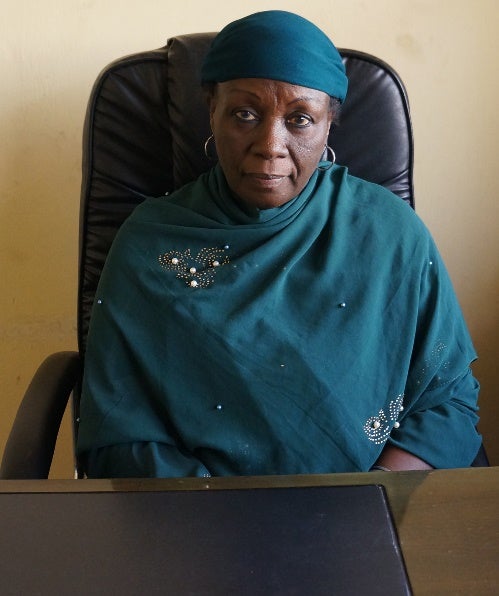
Professor Binta Abdulkarim
Professor Binta Abdulkarim was born on February 10, 1956, in Anchau, a town east of Zaria, in Kaduna State, northern Nigeria. She is the Coordinator of Gender Studies, at Ahmadu Bello University, Zaria, and is also Director of Girl Child Education there. She received her degree in Geography from Ahmadu Bello University and along with her leadership role in Gender Studies at ABU which began in 2003, she teaches courses in the Department of Geography and in the Faculty of Science Education. Her special interest in the education and well-being of women at ABU has led to her participation in ASUU (the Academic Staff Union of Universities) as financial secretary, in the National Association of University Women (Nigeria), and in the federal Anti-Corruption Unit, as the university representative who oversees sexual harassment cases at Ahmadu Bello University. She is also an active participant in the World Association of Victimology and has attended association meetings in Nairobi, Amsterdam, and Nigeria, where she contributed to discussions of the victims of weather extremes and the after-effects of war.
Keywords: academia and women's studies, community activism, environment
Media: Name Pronunciation Audio, Transcript, Video, YouTube Video

JD Davids
JD Davids, born in 1967, is a US-based health justice and communications strategist working with national networks of disabled and chronically ill people. He co-founded Strategies for High Impact and its Network for Long COVID Justice in 2021. Davids has been an external expert advisor to the NIH, CDC, and local health departments, and has served as a strategist and organizer with many pivotal groups, including ACT UP Philadelphia, AVAC, the Coalition for a National HIV/AIDS Strategy, Health GAP, the Health Not Prisons Collective, the HIV Prevention Justice Alliance, Positive Women’s Network – USA and the U.S. Caucus of People Living with HIV. As a queer and trans person living with myalgic encephalomyelitis (ME/CFS), Long COVID and other complex chronic conditions, he writes and hosts conversations for The Cranky Queer Guide to Chronic Illness (@TheCrankyQueer), sits on the board of #MEAction and is a contributing member of the Patient-Led Research Collaborative, which released the first comprehensive study on Long COVID.
Keywords: activism during the COVID-19 pandemic, community activism, disability rights, gender and health, international rights
Media: Transcript (English), YouTube Video, Name Pronunciation Audio
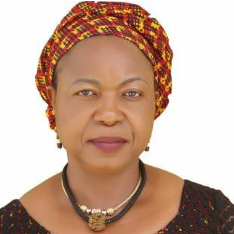
Dr. Joy Ngozi Ezeilo
Dr. Joy Ngozi Ezeilo is professor of law and the Dean of the Law School, University of Nigerian (UNN). She has been the lead professor of the "Women, Children, and the Law" class at the UNN since 1997. An activist and feminist scholar, Dr. Ezeilo was appointed the UN Special Rapporteur on trafficking in persons between 2008 and 2014, during which time she traveled to several countries to determine the causes, mechanisms, and scope of human trafficking. She is an active member of the civil society movement in Nigeria, where she founded the Women’s Aid Collective (WACOL), a not-for-profit that works to promote and protect the rights of women and girls. She is the founder and moderator of the West African Women’s Rights Coalition (WAWORC).
Keywords: politics and the law, reform of domestic/family roles, gender-based violence, academia and women's studies, environment, feminist conferences
Media: Name Pronunciation Audio, Transcript, Video, YouTube Video
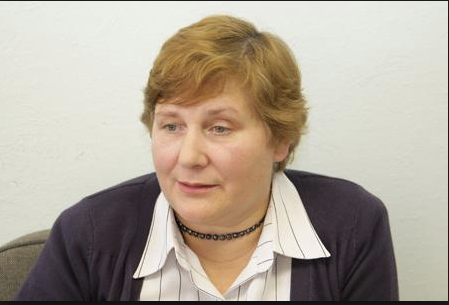
Mariia Grigor’evna Kotovskaia
Mariia Grigor'evna Kotovskaia, born in 1952, is a professor, ethnographer, and anthropologist. She began to research issues related to women and gender in the 1990s and became one of the founders of the Group for Ethno-Gender Research (at the Institute of Ethnology and Anthropology at the Russian Academy of Sciences). She is on several councils and commissions, particularly for issues such as migration and immigration, family and youth, and women in leadership.
Keywords: academia and women's studies, international rights, feminist conferences
Media: Transcript (English, Russian), Video (English, Russian), YouTube Video (English, Russian), Name Pronunciation Audio
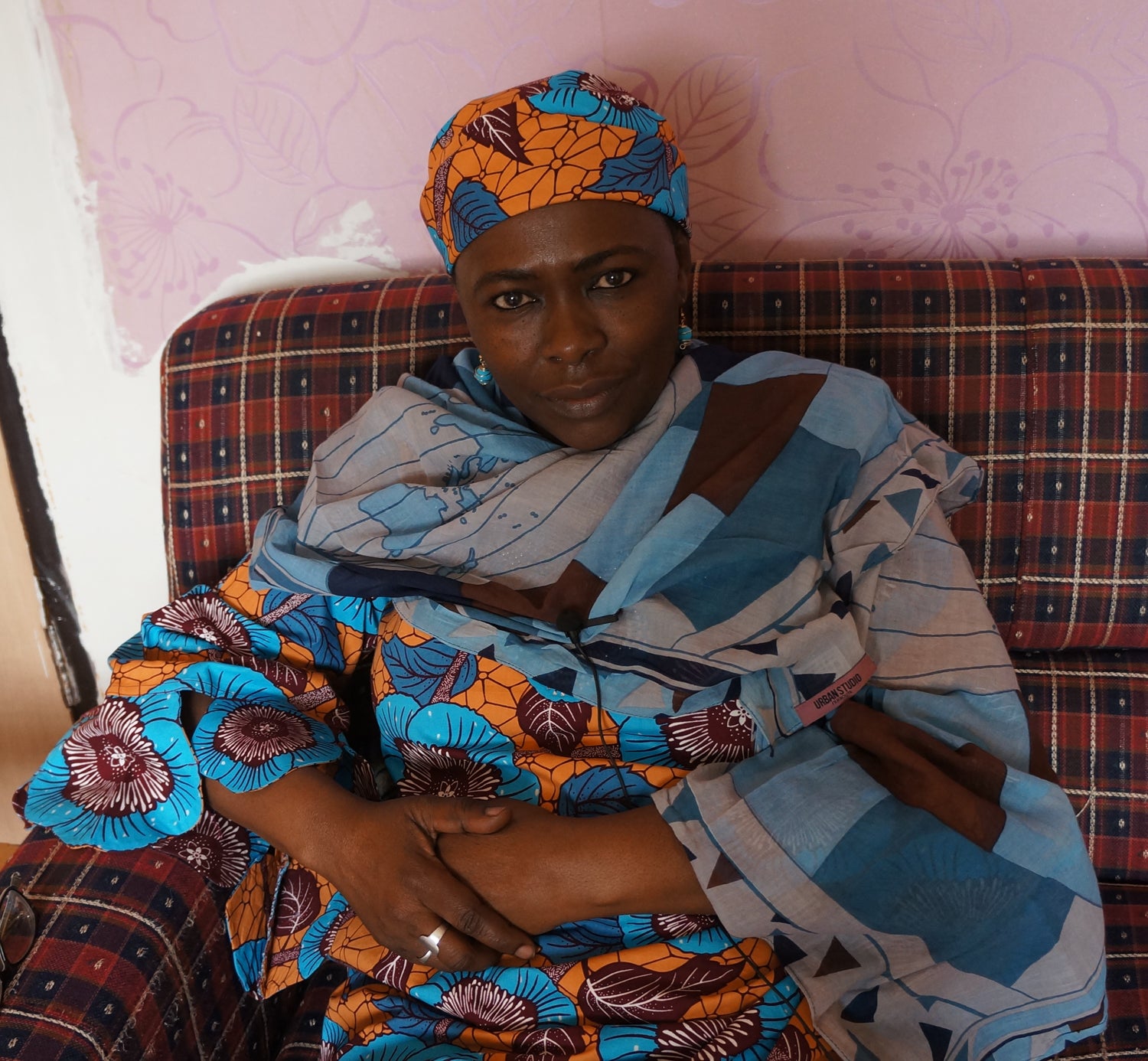
Dr. Mairo Usman Mandara
Dr. Mairo Usman Mandara was born on June 5, 1965, in Bukuru, just outside of Jos, the capital of Plateau State, Nigeria. She first attended primary school in Bukuru and continued her post-secondary education at the University of Jos. There she studied medicine, specifically women’s health issues, an interest that expanded to include the socio-economic issues associated with women’s health such as VVF (vesico-vaginal fistula), e.g., early marriage and stunting due to malnutrition. Her work as an obstetric-gynaecologist led to a broader feminist concern with girl-child education, the founding of the Federation of Muslim Women of Nigeria (FOMWAN), and with the NGO, Girl-Child Concerns. Between 2005 and 2010, Dr. Mandara was a Senior Country Adviser in Nigeria to the David and Lucile Packard Foundation and more recently worked with the Bill & Melinda Gates Foundation as the Country Representative to Nigeria. Her current activist and scholarly work reflect her belief in the importance of working with traditional political and religious leaders in encouraging parents to enable their daughters to complete their secondary school education.
Keywords: gender and health, reform of domestic/family roles, academia and women's studies, feminist conferences
Media: Name Pronunciation Audio, Transcript, Video, YouTube Video

Vilma Núñez
Vilma Núñez, born in 1938, served as the first woman on Nicaragua's Supreme Court after the Sandinista Revolution. As a student, she became a member of the FSLN and participated in the anti-Somoza struggle, until she was imprisoned for these efforts in 1979. Núñez has been unofficially banished from the FSLN after running for president against Daniel Ortega and defending charges of sexual abuse against him. Núñez founded the Nicaraguan Center for Human Rights (CENIDH) in 1990.
Keywords: gender-based violence, human trafficking/prostitution, imprisonment, international rights, politics and the law
Media: Transcript (English, Spanish), Video , Bibliography, Name Pronunciation Audio
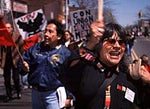
Martha Ojeda
Martha Ojeda, born in 1956, is the Executive Director of the Tri-National Coalition for Justice in the Maquiladora, where she directs the Maquiladora Worker Empowerment Project. While a worker in the Free Trade Zone factories, she led the Nuevo Laredo Sony Movement and wrote a manual on Mexican Federal Labor Law. She has received the Petra Foundation Award, "Troublemaker of the Year" by Mother Jones Magazine, and the Quality of Life Champion's Public Service Award.
Keywords: environment, international rights, intersectionality, politics and the law
Media: Transcript (English), Video, Bibliography, YouTube Video, Name Pronunciation Audio
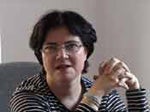
Malgorzata Tarasiewicz
Malgorzata Tarasiewicz was born in 1960. She is the organizer and leader of the Polish section of the Network of East-West Women. Tarasiewicz became involved in anti-Communist university strikes as a student during the early 1980s, which eventually led to her activism on behalf of women's rights. She admits that the labor unions with which she was involved were anti-feminist, especially during the early 1990s with the national anti-abortion debate supported by the overwhelmingly male leadership of the Solidarity Labor Union and the Catholic Church.
Keywords: international rights
Media: Transcript (English, Polish), Video (English, Polish), Bibliography, English YouTube Video, Name Pronunciation Audio
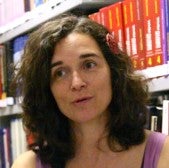
Shirley Villela
Shirley Villela, born in Rio de Janeiro in 1964, began her professional work in gender issues while living for three years in the USA, volunteering at the International Gender and Trade Network. Since 2012, she has been the Coordinator of the Maré de Sabores project, a vocational training project for women in Rio.
Keywords: feminist conferences, community activism, education
Media: Transcript (English, Portuguese), Video, YouTube Video (Portuguese, English Subtitles), Name Pronunciation Audio



